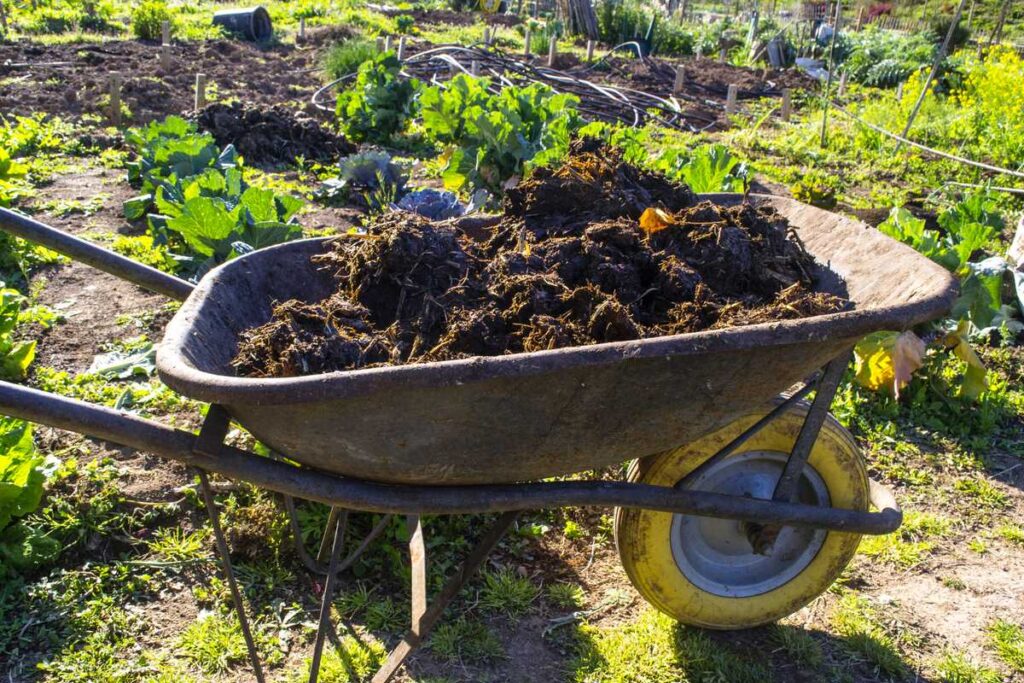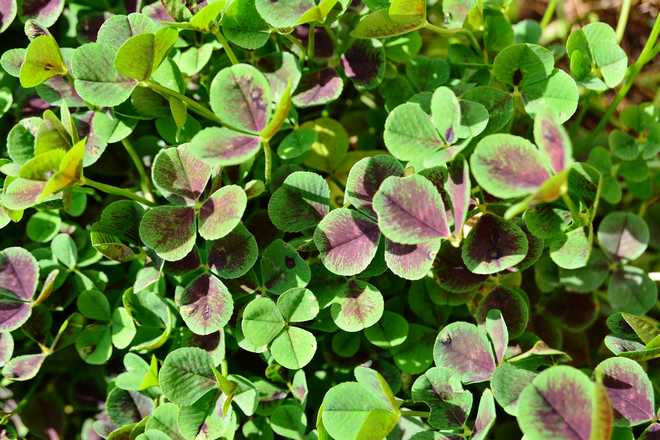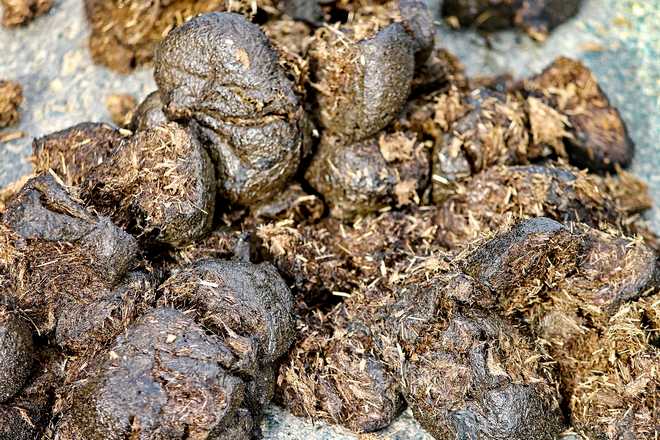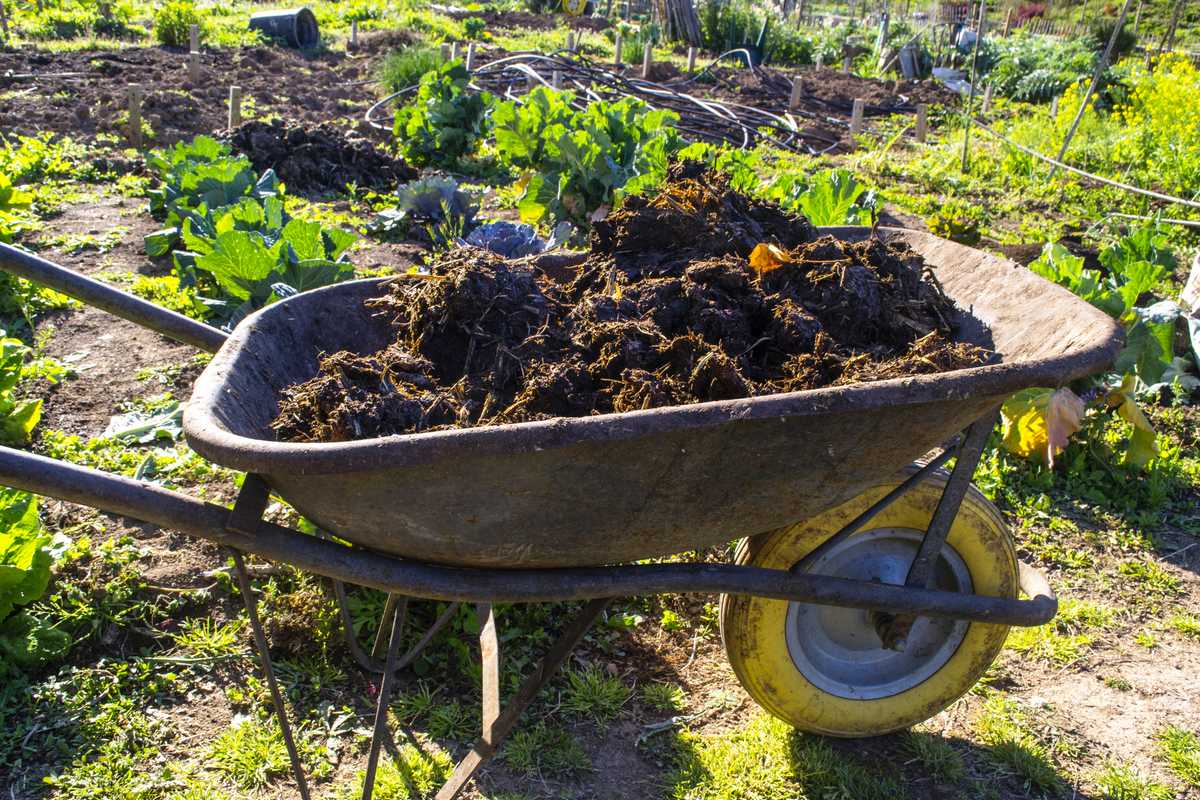
Winter is the best season to improve the structure of the soil by adding organic or mineral matter. Amended little by little, each year, but also as the crops and seasons change, the soil of your vegetable garden becomes darker and more fertile. Discover 7 useful natural amendments.
Without humus, no soil!
For a long time, it was believed that spreading organic fertilizer in the vegetable garden was enough to nourish the plants and obtain a good harvest. But in reality, it is the soil organisms that must be fed because they are the ones that decompose the organic matter and transform it into humus.
Humus plays a crucial role in the fertility of the soil. Like a sponge, it retains the mineral elements that can be absorbed by plants and releases them as the plants need them.
Without this humus, the organic matter would be quickly washed away by rain.
An amendment does not feed the soil
Contrary to another widely held idea, an amendment does not directly nourish the soil, nor the plants, but it does improve its texture. It is thus to promote the life and work of microorganisms that we amend a soil.
An appropriate amendment can, in the long term :
- Give more consistency to a sandy soil,
- Decrease the acidity of heather soil by raising the ph
- Lighten heavy soils, especially clay-limestone soils.
Two types of amendments are used globally:
- Mineral amendments, made of crushed rocks
- Organic amendments, produced by living organisms.
Dolomite, to correct soil acidity
This mineral amendment is obtained from a limestone rock rich in magnesium that is crushed. It is generally applied in small doses; follow the recommended dosage on the package. Dolomite raises soil pH and improves the texture of clay soils.
This amendment can be applied year-round, but is most effective during the fall and winter (October through March) because it takes time for the dolomite to become fully incorporated into the soil.
Basalt powder, to lighten it
Basalt is a volcanic rock. Once crushed, we obtain a mineral amendment that comes in the form of a powder.
Basalt has many uses:
- It gives consistency to a light soil
- It allows to lighten a heavy soil
- It stimulates the microbial life of the soil
It is spread at a rate of 3 to 5 kg per m².
Maerl or lithothamnion
It is an organic amendment from the sea. Rich in trace elements and magnesium, it essentially contains marine algae and sand impurities.
Like dolomite, it is preferably used to raise the pH of acid soils.
Vegetable charcoal or biochar
Biochar is a charcoal obtained by burning vine shoots or bamboo shoots, usually with low oxygen content. It is a natural amendment and fertilizer interesting to use in the vegetable garden for its microscopic porosity and its longevity.
The porous structure of biochar shelters micro-organisms and fungi. Biochar makes the soil more alive.
This same porosity allows to retain the mineral elements of the soil, which allows to fight against the leaching of the soil by the repeated rain waters.

Green manures, half amendment, half fertilizer
Very used in the practice of a gardening in permaculture, the green manures play a role of fertilizer as much as amendment to obtain a rich soil:
- They promote the microbial life of the soil by providing organic matter
- They improve its structure and drain it thanks to the work of their root system
- They draw deep into the soil and bring up the trace elements leached by the rain
- Green manures from the legume family fix nitrogen from the air and return it to the soil in a form that can be assimilated by plants.
This is why it is interesting to sow green manures to occupy the soil as soon as a few square meters become available.
Cattle, horse and poultry manure
Animal manures are organic amendments that are fairly easy to obtain, especially in the countryside.
Some gardeners consider them as fertilizers. They are not wrong because manure not only modifies the structure of the soil, but also releases nutrients useful to plants.
Horse manure is by far the most interesting because it is richer in straw (carbonaceous matter). Next are cow manure, which is rich in nitrogen, sheep and goat manure and poultry manure. If you raise chickens for their eggs, don’t forget to collect and use their droppings in your vegetable garden.

Manure is spread over the entire surface of the soil in winter, at a rate of about 1 kg/1m². Do not bury them, simply scratch the soil to incorporate them in the first centimeters of the soil.
But they also sometimes have a bad reputation: they are accused of carrying diseases to plants and of containing many seeds that germinate and colonize the crop beds. To avoid these inconveniences, it is recommended to let them compost for several months before using them.
Compost, a source of humus and nutrients
Like manure, compost is both a fertilizer and an organic soil amendment. It can be used all year round, not only in winter, at a rate of 1kg/1m².
It acts in 3 complementary ways:
- First of all, compost is very rich in humus. Once mixed with the soil, it brings a large quantity of humus that stimulates the proliferation of organisms in a sustainable way.
- Compost is also very rich in micro-organisms of all kinds: bacteria, fungi, insects… By adding compost, we enrich the soil with all this fauna.
- Finally, compost is an important source of nutrients. The earthworms absorb the soil, then reject it strongly enriched with nutrients which are immediately available for the plants.
Vermicompost, which can easily be produced in a kitchen or garage with a special composter, is an even richer compost in humus and nutrients. Dose it at 1kg for about 2m².

